When you hop into your car, one of the first things you do after turning on the engine is switch on the air conditioner. But what happens when the air only starts cooling once you start driving? Although your air conditioner is functioning, you might still wonder what's wrong. We know where you're coming from, so we researched this concern and summed up the answer for you in this post!
If you notice your car's air conditioner only working during a drive, it may be due to a failure with one of its components. This can come from:
- the condenser fan
- the compressor
- low coolant levels
- clogging or blockages
- an overheating engine
Fortunately, these problems affect comfort more than performance. However, they may call for repairs and replacements.

While a faulty air conditioner is generally a minor issue, it can be frustrating to deal with as time passes. Keep reading for a deeper discussion about why it happens and what you can do about it!
Why Is My A/C Only Cold When Driving?
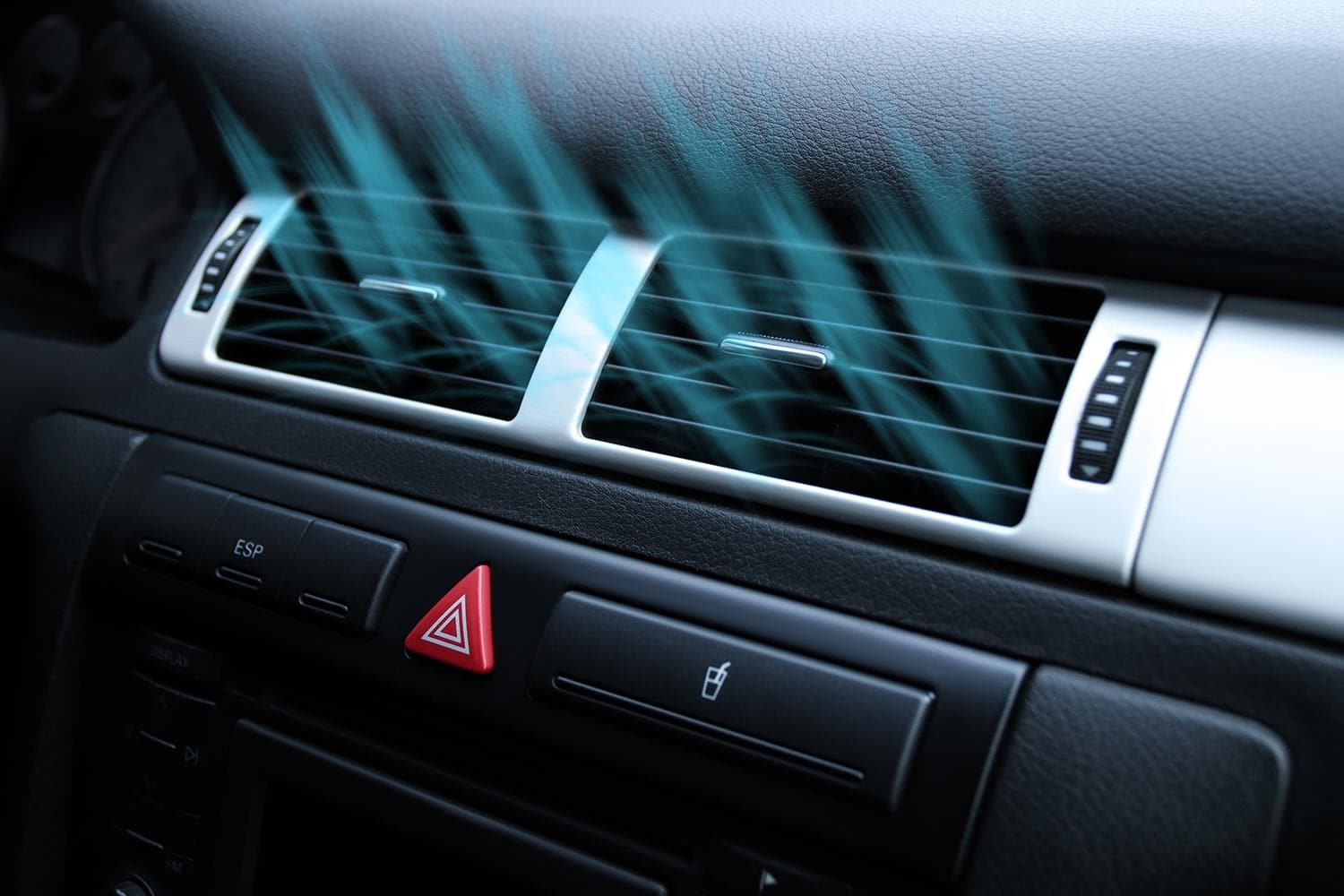
Faulty car air conditioning often results from an issue with its parts. The root of the problem could be poor maintenance, improper use, or natural wear and tear.
Here are the possible causes behind why your car's air conditioner only starts cooling in the middle of driving:
The Condenser Fan
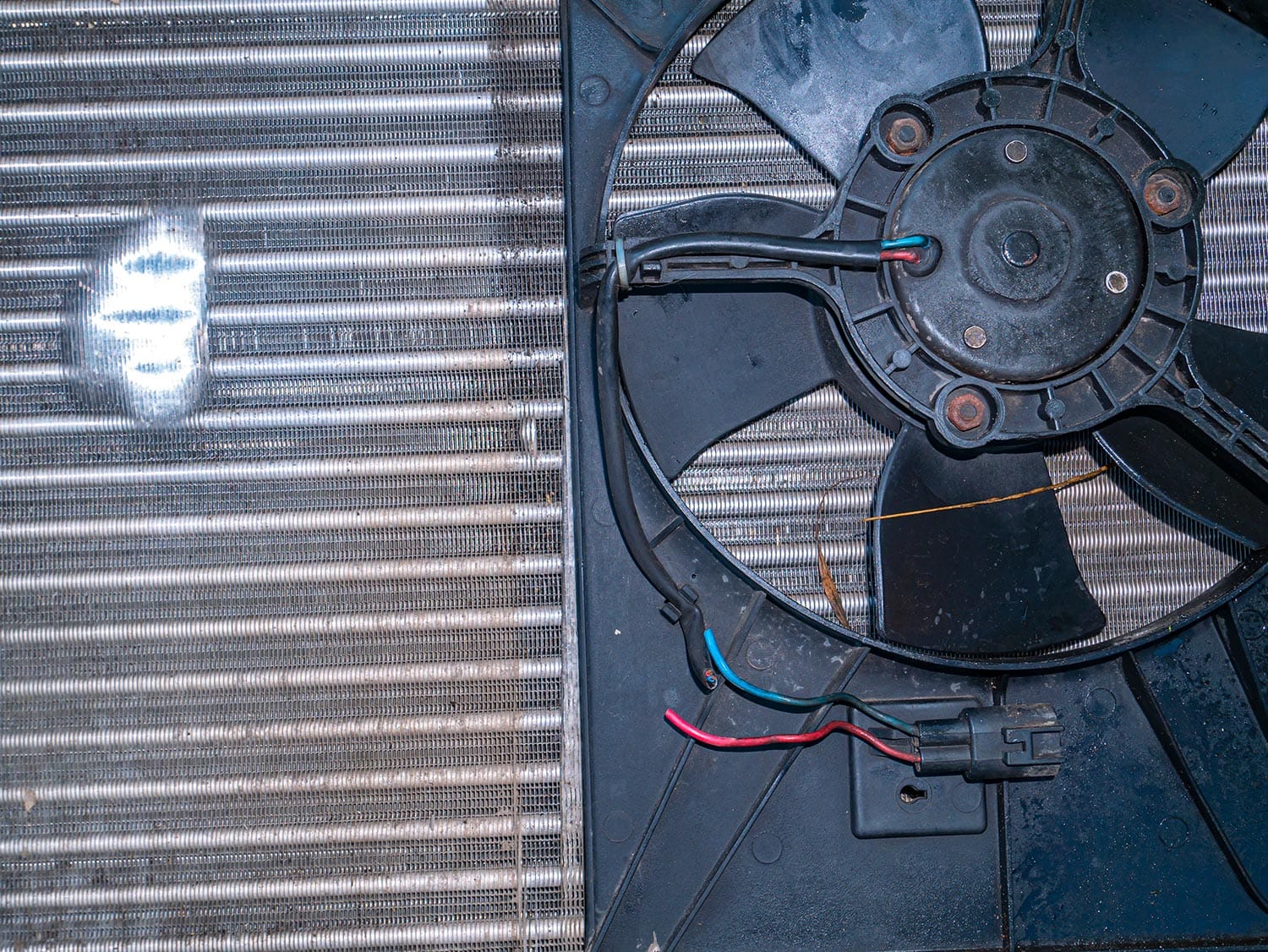
Your car's A/C system relies on the condenser fan to effectively cool by transferring heat from the vehicle to the outdoors, but the car can cool when it's moving even without the fan because sufficient air passes.
The condenser fan turns on automatically in most car types when the engine hits optimal operating temperatures, typically once it's over 185 degrees Fahrenheit. So, if the A/C doesn't seem to be cooling by that time and the car is idle, it may mean the condenser fan failed to come on.
Some reasons for condenser fan failure are loose connections and wiring, a faulty temperature switch or coolant sensor, or a stuck engine thermostat.
The Compressor
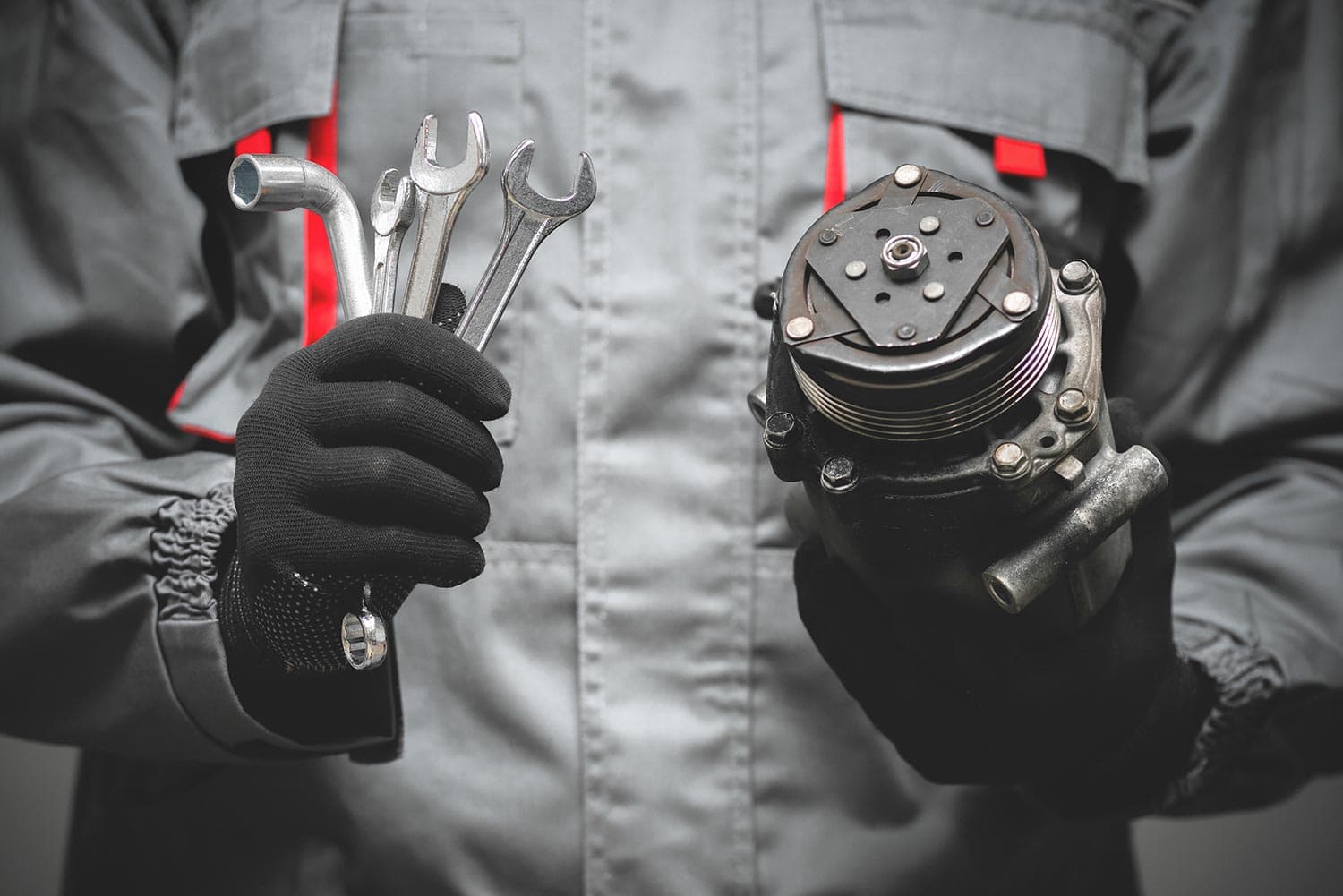
The compressor comes with coils responsible for cooling the air going through it. When this component is not cold, your engine works to continue keeping the coils cool.
Stopping the car means the engine is not working. And so, with a faulty compressor, the coils and the cabin cannot cool, resulting in warm air.
Low Coolant Levels
Freon, the coolant in air conditioners, maintains the proper temperature in your engine to keep it working efficiently, even when outside temperatures rise or drop. If the Freon level is low, it fails to sustain the right temperature effectively.
Coolant levels decrease due to leakages in the A/C system. These are likely if your car doesn't have an under guard or when condenser seals and tubes deteriorate.
Clogging Or Blockages
Outside debris is unlikely to get into the A/C system, but clogging may still occur within it. Improper maintenance will result in residue buildup that blocks the condenser or compressor, disturbing the circulation of Freon and dissipation of heat.
At the same time, no air will pass through the system's unblocked parts when the car is idle. Therefore, the cabin won't have anything to cool.
An Overheating Engine
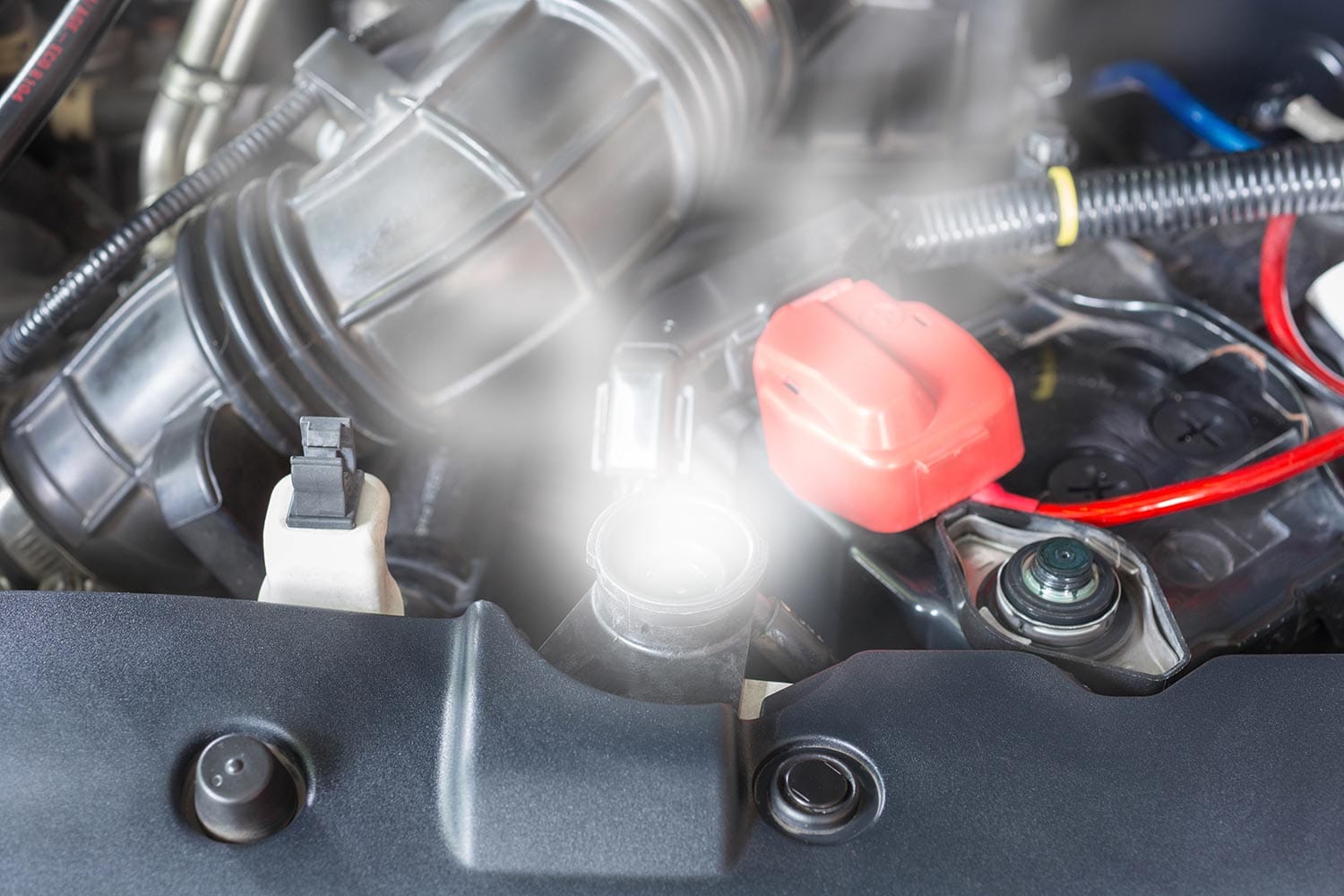
In some situations, the problem lies in your car's engine rather than its air conditioner. An overheating engine raises the temperature within different systems in your vehicle, including air conditioning.
When this happens, your A/C system will have to eliminate excess heat on top of warm air in the car to achieve desired temperatures. But since air passes through while your drive, it helps cool down the engine, allowing the A/C system to focus on cooling inside air.
How Can I Tell If My Car A/C Is Failing?
As with most car owners, turning on the A/C is probably the next step you would take once you start the car. If so, you would quickly notice when it blows air that's warmer than usual.
However, it doesn't always mean you have a broken air conditioner. Listed here are a few signs to help you identify whether or not your car A/C is failing:
A/C Is Warmer Or Not Cooling
The most obvious sign of a faulty air conditioner is its inability to cool. The sole purpose of your car's A/C is to produce cold air. When it stops doing so, that's a sign that there's a problem.
Take your time in observing this rather than jumping to quick conclusions. You might have a faulty component if the A/C cools when the car is moving. Otherwise, your A/C system will need a repair or replacement.
Noises During Operation
When you hear strange sounds from your vehicle, it's a sign that a component is faulty or damaged. With the A/C, listen closely for any unwanted noises after turning it on.
If the noise only comes up when the A/C is on, it may come from the compressor. If the sound is constant, another part of your car's system might be damaged and affect the air conditioning.
Damaged A/C Compressor
Evaluate your A/C compressor or other components every once in a while to find any evident damage. This damage could affect the whole system and eventually lead to air conditioner failure. These issues include corrosion, physical damage, oil leaks, etc.
A common problem with the compressor is when the clutch does not engage. After switching the A/C on, the clutch should click and start spinning. You need to get your compressor checked and serviced if it doesn't do this or if it produces a screeching or similar sound.
If your car A/C is keeps switching on and off, read this post for solutions: Car Air Conditioner Turns On And Off – What Could Be Wrong?
How Much To Repair A Car Air Conditioner?
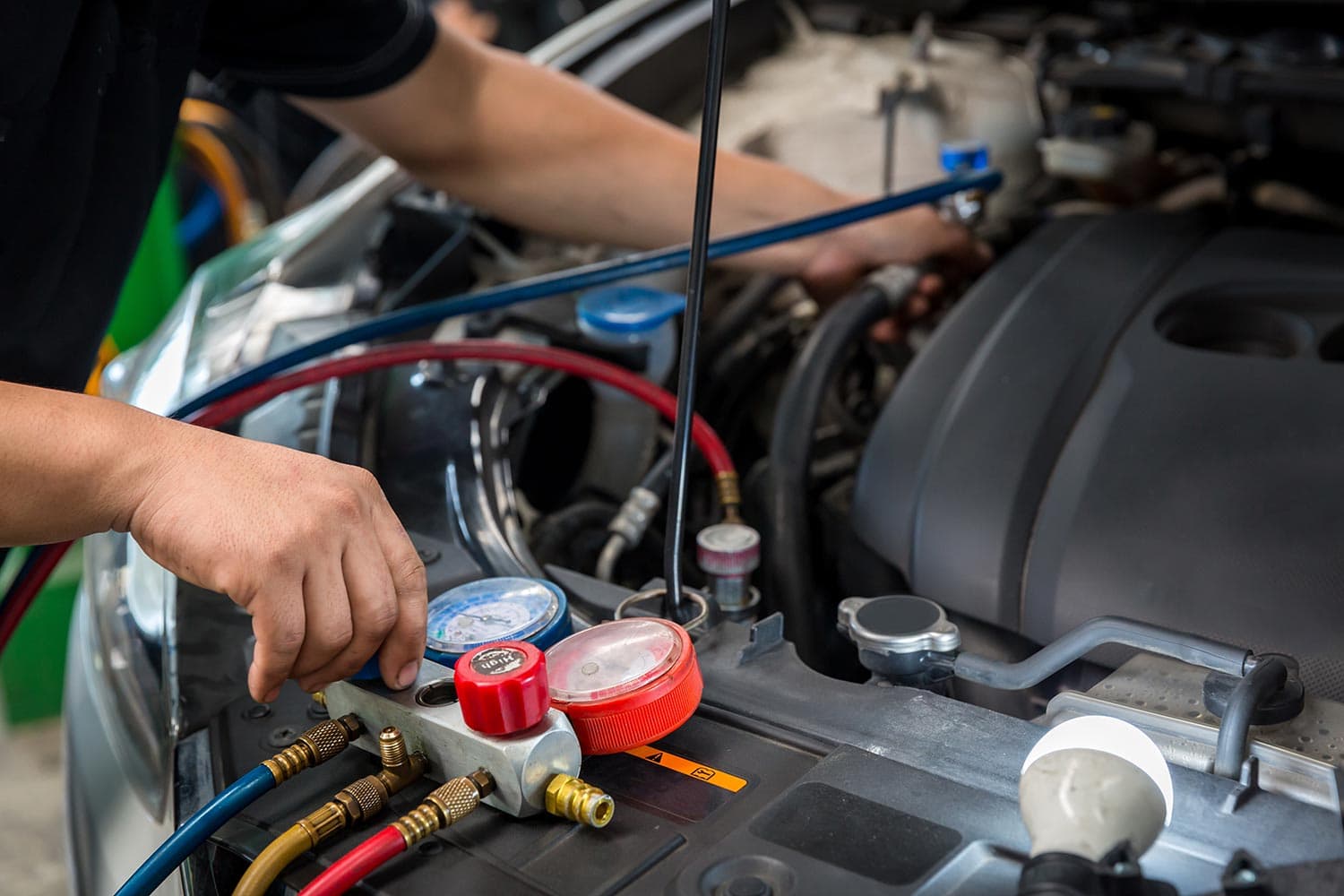
The cost to repair a car A/C will vary on the component and if you need it fixed or replaced. Depending on the issue, you can expect to pay about $10 to a few thousand dollars.
Some of these damages can be a DIY fix, such as replacing cabin filters. If the job is more complex, like repairing leaks and replacing parts, you're better off leaving it to licensed professionals to avoid further complications.
Check out Spearhead's Premium Cabin Filter on Amazon.
Common Car Air Conditioner Problems [With Quick Solutions]
Your A/C might be experiencing other complications that affect its ability to cool or blow air. If neither of the reasons stated above is the problem, there might be a different underlying cause.
Here are other common issues with car A/C systems and how you can fix them:
System Leakage
The breakdown of hoses and seals in your A/C system is a part of natural wear and tear. These harm the framework and cause corrosion and deterioration, resulting in Freon leakages.
You can correct noticeable spillage by replacing or repairing the seals and hoses or adding an engine splash shield to your vehicle. If the Freon levels become too low, consider refilling the refrigerant tanks.
Unpleasant Smell
Bacteria and fungi can build up in a car A/C framework due to lack of use, such as during the winter. This can lead to blockages in the system, preventing cool air from passing through and spreading unpleasant odors.
Cleaning the framework and other affected system components can reduce the smell. Be aware that inhaling this bacteria may be harmful. You can add car fresheners after cleaning to further eliminate the smell.
Get the Febreze Unstopables Car Air Freshener on Amazon.
Read this post for solutions on how to deal with other undesirable car A/C odor: Car Air Conditioner Smells Like Pee – What Could Be Wrong?
Excessive Moisture
Your A/C system cools your vehicle by forcing the warm air outside. The hot air that passes through tends to deposit dirt and extra moisture when it comes into contact with the cooling system. These can collect within the A/C system and hinder it from effectively making the interior air colder.
A thorough cleaning of the system removes unwanted debris, and you can do the following to eliminate the excess moisture:
- Air out the car by leaving the windows open.
- Turn on the car's A/C fan or air blower.
- Use a car condensation absorber.
Check out the Barska Safe Moisture Absorber on Amazon.
 The Bottom Line
The Bottom Line
There's no need to panic when you notice your car A/C failing to cool when your car is idling. The problem is often minor, but it may require a repair or replacement depending on the faulty component.
Usually, these involve the condenser fan, compressor, Freon level, or engine. You can detect these issues with proper assessment and observation, especially if you hear strange noises coming from the A/C or find any signs of physical damage to the system.



